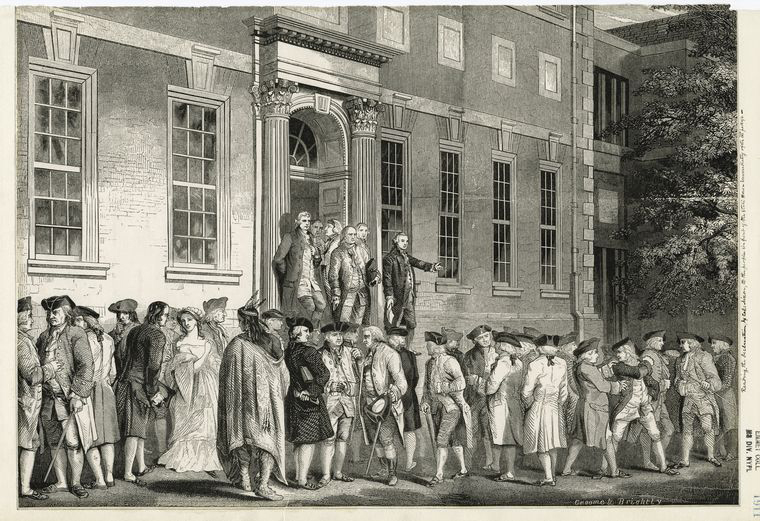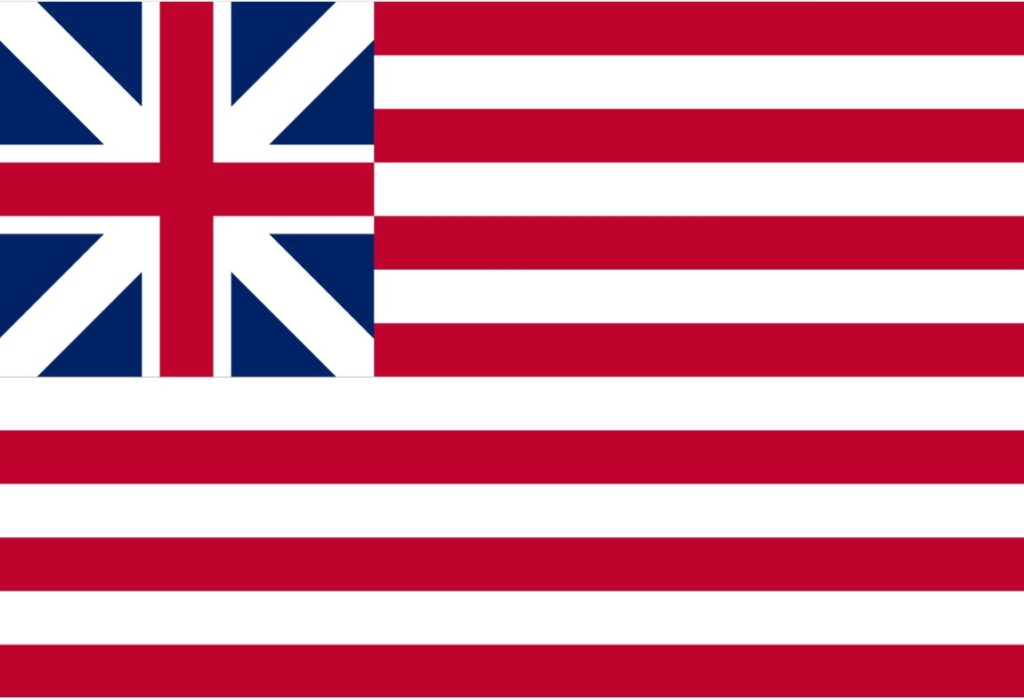The North Carolina Constitutional Convention of 1776, renounces its royal charter, by promulgating its first Constitution, the Declaration of Rights, Sections 1, 3, 4, 7, 9, 10, 11, 12, 14, 15, 17, 18, 19, 20, 22, 23, 24, and 25 of which state:
- “That all political power is vested in and derived from the people only.
- “That no man or set of men are entitled to exclusive or separate emoluments or privileges from the community, but in consideration of public services.
- “That the legislative, executive, and supreme judicial powers of government, ought to be forever separate and distinct from each other.
- “That, in all criminal prosecutions, every man has a right to be informed of the accusation against him, and to confront the accusers and witnesses with other testimony, and shall not be compelled to give evidence against himself.
- “That no freeman shall be convicted of any crime, but by the unanimous verdict of a jury of good and lawful men, in open court, as heretofore used. [emphasis added]
- “That excessive bail should not be required, nor excessive fines imposed, nor cruel or unusual punishments inflicted.
- “That general warrants — whereby an officer or messenger may he commanded to search suspected places, without evidence of the fact conmlittecl [sic], or to seize any person or persons, not named, whose offences are not particularly described, and supported by evidence — are dangerous to liberty, and ought not to be granted.
- “That no freeman ought to be taken, imprisoned, or disseized of his freehold liberties or privileges, or outlawed, or exiled, or in any nlanller [sic] destroyed, or deprived of his life, liberty, or property, but by the law of the land.
- “That in all controversies at law, respecting property, the ancient mode of trial, by jury, is one of the best securities of the rights of the people, and ought to remain sacred and inviolable.
- “That the freedom of the press is one of the great bulwarks of liberty, and therefore ought never to he restrained.
- “That the people have a right to bear arms, for the defence of the State; and, as standing armies, in time of peace, are dangerous to liberty, they ought not to be kept up. …
- “That the people have a right to assemble together, to consult for their common good, to instruct their Representatives, and to apply to the Legislature, for redress of grievances.
- “That all men have a natural and unalienable right to worship Almighty God according to the dictates of their own consciences.
- “That, for redress of grievances, and for amending and strengthening the laws, elections ought to be often held.
- “That no hereditary emoluments, privileges or honors ought to be granted or conferred in this State.
- “That perpetuities and monopolies are contrary to the genius of a free State, and ought not to be allowed.
- “That retrospective laws, punishing facts committed before the existence of such laws, and by them only declared criminal, are oppressive, unjust, and incompatible with liberty; wherefore no ex post facto law ought to be made.
- “The property of the soil, in a free government, being one of the essential rights of the collective body of the people, it is necessary, in order to avoid future disputes, that the limits of the State should be ascertained with precision.” [emphasis added].
And Articles 1, 7, 8, 31, 32, 34, 39 and 50 of which state:
- “That the legislative authority: shall be vested in two distinct branches both dependent on the people, to wit, a Senate and House of Commons. [emphasis in the original]
- “That all freemen, of the age of twenty-one years, who have been inhabitants of any one county within the State twelve months immediately preceding the day of any election and possessed of a freehold within the same county of fifty acres of land for six months next before, and at the day of election, shall be entitled to vote for a member of the Senate.
- “That all freemen of the age of twenty-one Years, who have been inhabitants of any one county within this State twelve months [sic] immediately preceding the day of any election, and shall have paid public taxes shall be entitled to vote for members of the House of Commons for the county in which he resides.
- “That no clergyman, or preacher of the gospels of any denomination, shall be capable of being a member of either the Senate, House of Commons, or Council of State, while he continues in the exercise of the pastoral function.
- “That no person, who shall deny the being of God or the truth of the Protestant religion, or the divine authority: either of the Old or New Testaments, or who shall hold religious principles incompatible with the freedom and safety of the State, shall be capable of holding any office or place of trust or profit in the civil department within this State.
- “That there shall be no establishment of any one religious church or denomination in this State, in preference to any other; neither shall any person, on any presence whatsoever, be compelled to attend any place of worship contrary to his own faith or judgment, nor be obliged to pay, for the … building of any house of worship, or for the maintenance of any minister or ministry, contrary to what he believes right, of has voluntarily and personally engaged to perform; but all persons shall be at liberty to exercise their own mode of worship. …
- “That the person of a debtor, where there is not a strong presumption of fraud, shall not be continued in prison, after delivering up, bona fide, all his estate real and personal, for the use of his creditors in such manner as shall be hereafter regulated by law. All prisoners shall be bailable by sufficient sureties, unless for capital offences when the proof is evident or the presumption great. [emphasis in the original]
- “That every foreigner, who comes to settle in this State having first taken an oath of allegiance to the same, may purchase, or, by other means, acquire, hold, and transfer land, or other real estate; and after one year’s residence, shall be deemed a free citizen.”
[restored 11/10/2024]
Subsequent Events:
Authority:
unanimous Declaration (of Independence), Paragraph 6
ccc-2point0.com/unanimous-declaration-of-independence
References:
The Avalon Project : Constitution of North Carolina : December 18, 1776
avalon.law.yale.edu/18th_century/nc07.asp
Constitutions of the Several states
www.thegreenpapers.com/slg/constitution.phtml


